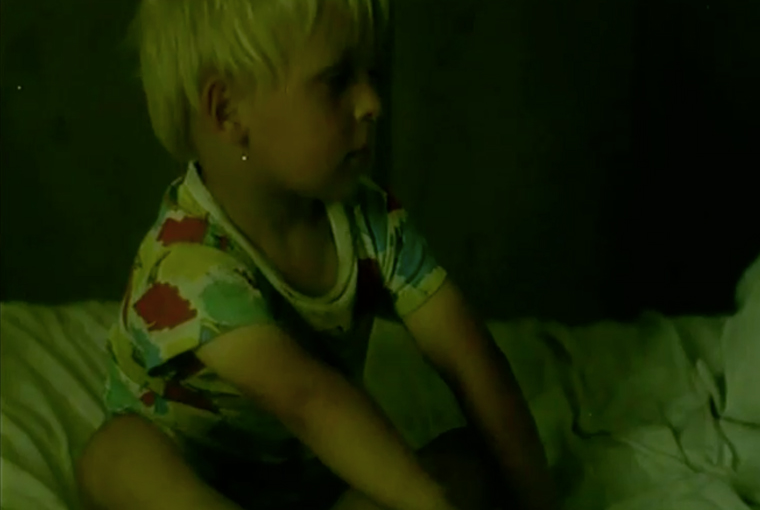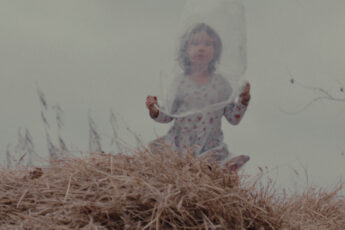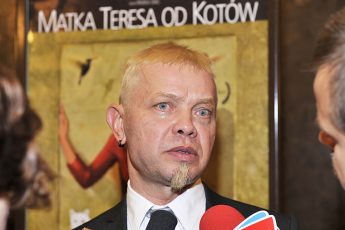
Those who know Polish director Małgorzata Szumowska via Elles, In the Name of…, or 33 Scenes of Life, may be surprised by the unconventionality of her earlier films. While her last features explore relatively mainstream topics in a straight forward narrative and style, her early works astonish by playing with experimental and surreal techniques.
Szumowska’s early films can be divided into two categories, documentaries and surrealist experimental films. Her two documentaries Cisza (Silence) and Dokument…? are very different from one another. Silence, Szumowska’s graduate thesis film, is an impressionist portray of a day of life on a farm. There are no dialogues and, as the title suggests, the film mostly captures the silent hours of the day. A scene in which two small boys tease each other is as loud is it gets. Peaceful sequences of nature intersect with the quiet country life, and one is invited to marvel at the way in which nature is reflected in it.
If silence was the subject matter of this film, her other documentary is about dialogue. In it, the director asks friends and relative what they think about different subjects like love, happiness, marriage and betrayal. Whereas she tried to be invisible as a director in her previous documentary, she now uses techniques of Jean Rouch and Edgar Morin’s “cinéma vérité” by trying to simultaneously show how difficult it is to talk about these things in front of a camera. Thus she just continues filming after the official “stop” or uses a second camera to film herself filming, and asks her interviewees to discuss their difficulties in being “true” in front the camera with her. The result is a sort of meta-film on the impossibility to be objective in the documentary genre. Paradoxically though, her interviewees appear rather “true” or “authentic” in their thoughts about these issues, and one wonders whether this was the director’s intent. In any way though, both films are nice exercises with very different documentary techniques.
Szumowska’s short films are more coherent, at least regarding their technique. Although they deal with different subjects, they all have strong surrealist elements, which Szumowska probably borrowed from Wojciech Has, who was her mentor in Film School. Most remarkably in this respect are Zanim Znikniesz (Before I Disappear) and Wniebowstąpienie (The Ascension). Both of these films are extremely cryptic, hard to follow, non-narrative, associative, in one word: weird. Before I Disappear begins with a feast which looks like a marriage. But everyone is dressed in black, so it could also be a funeral or, more likely, both at the same time, and hence an invitation to think about the marital/festive aspects of death and the deadly/mournful aspects of marriage. The ceremony/requiem continues in an uncanny country house, where the group dines in candle light, and later dances until we find the bride floating in a lake on a flower bed, presumably dead.
The Ascension, Szumowska’s other surrealist film which was screened at Cinefondation in Cannes in 1999, is based on a novella by Mikhail Bulgakov called House Nr. 13. During socialism, a mysterious man shows up in a housing block and distributes money among the inhabitants. The sudden presence of money makes the people in the house dream and remember their past. Chaos ensues and, as in the original story, a fire breaks out. This film lets the Bulgakov story take place during the transition period and tells an impressive parable about corruption, greed and fear. Like in her other surrealist films, these topics are not obviously visible. Orgiastic feasts are pierced with seemingly unrelated flashbacks of the inhabitant’s pasts.
All these films reveal a strong desire to experiment with different ways of storytelling and transmitting meaning. Some people may regret that Szumowska’s last films don’t seem to be as engaged as these in experimenting with more innovative techniques. Indeed, it is a pity that such efforts are often reserved for film school “exercises”, where there’s less at risk and students are encouraged to experiment. As has been noted in the journal earlier this year, recent short films by Łódź Film School students are also rather promising. As for Szumowska, ten minutes plus of associative symbolizing without dialogue, as was the case in The Ascension or Before I Disappear, would be something unthinkable in her films of today. One can only hope that she will someday rediscover her roots!




Leave a Comment